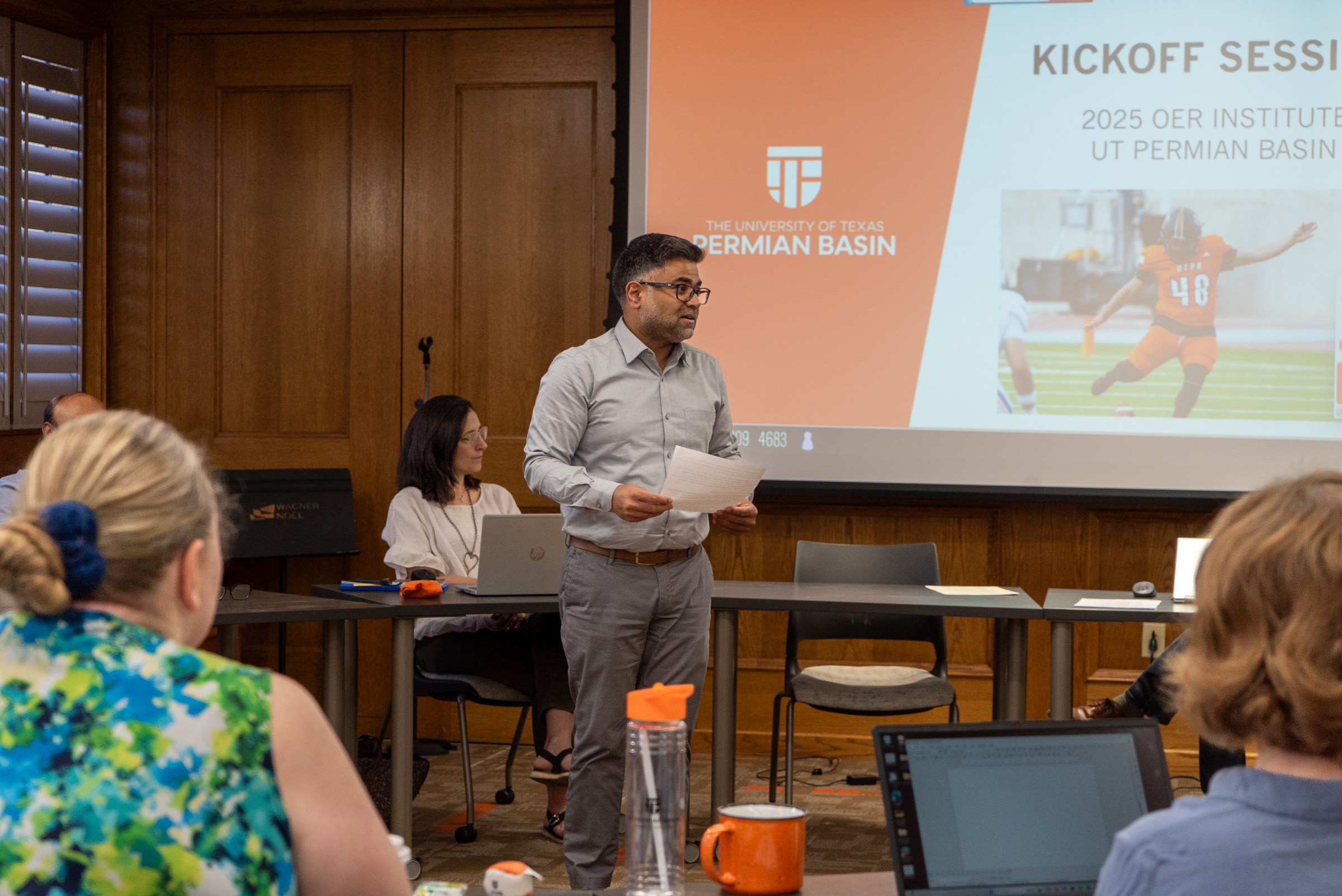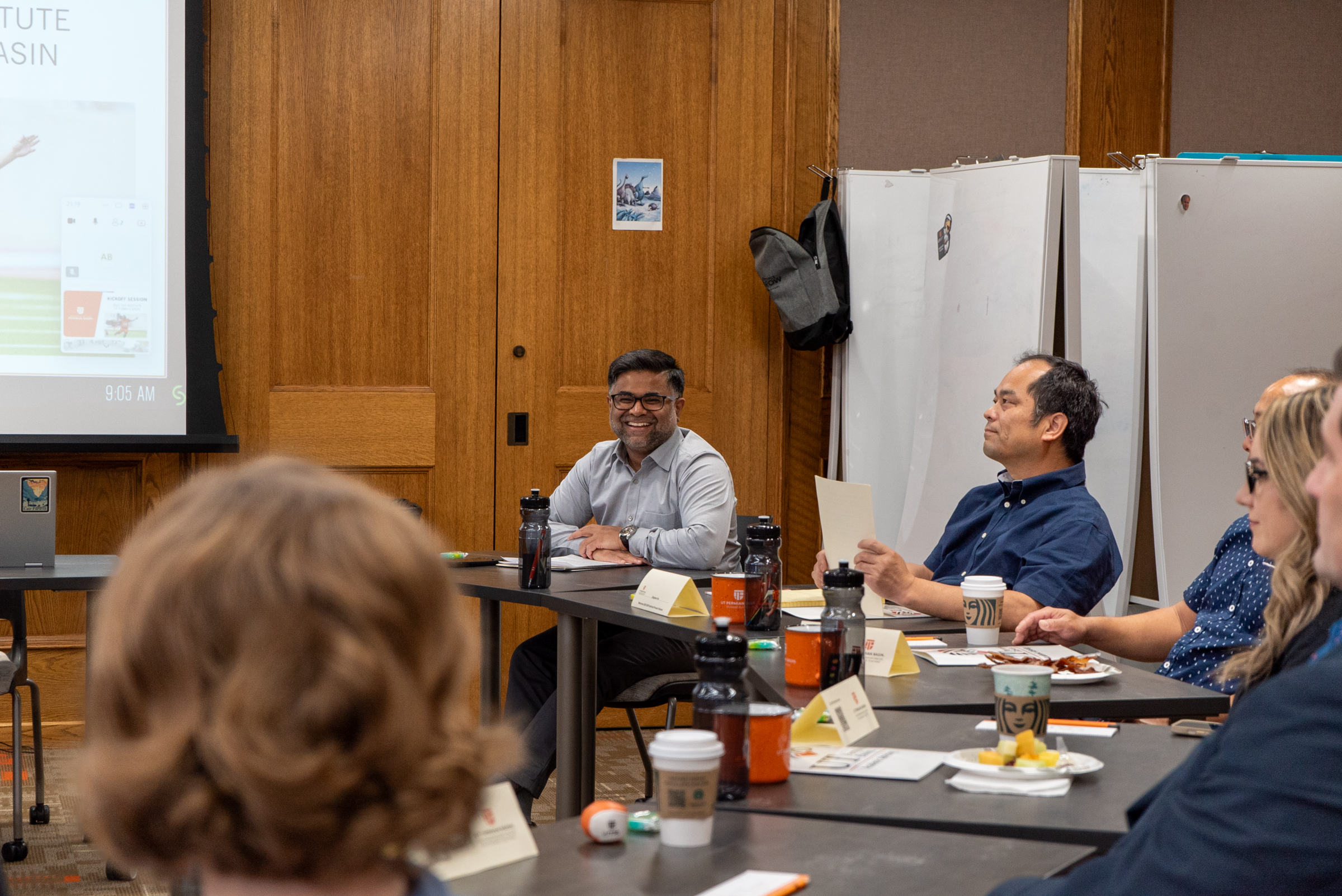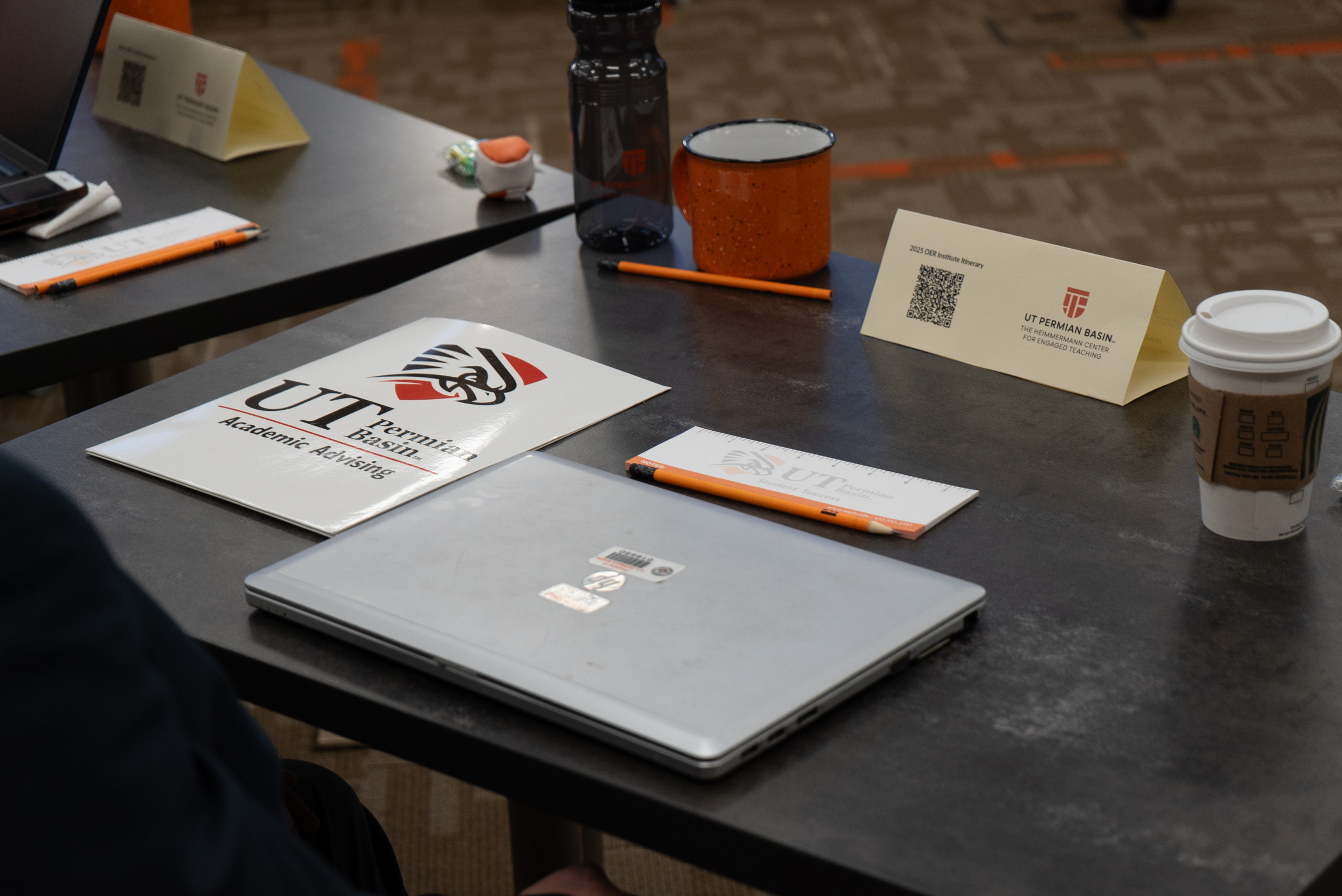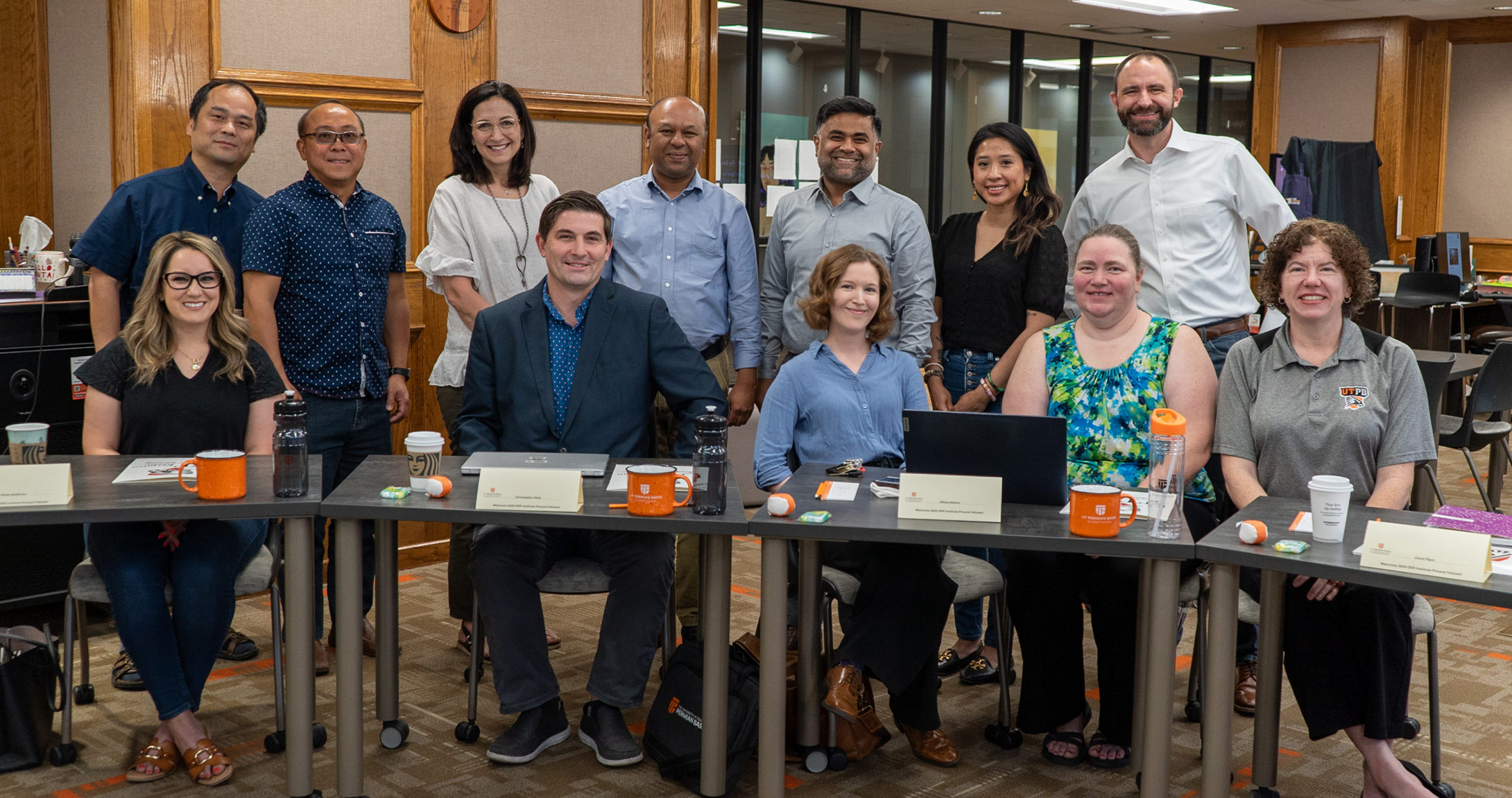The Open Educational Resources (OER) Provost Fellows Program at The University of Texas Permian Basin, is focused on removing financial barriers for students, helping them stay on track for success.

A group of faculty members were selected from a competitive pool of applicants to participate in the program. This was the first year the Summer Institute was offered, and proposals were requested from faculty.
“The OER Provost Fellows program is far more than a cost‑saving initiative—it is a strategic investment in teaching excellence, equitable access, and the long‑term success of every Falcon at UTPB. The program upholds our institutional pillars, capitalizes on the unique strengths of our region, and positions UTPB as a statewide and national leader in open education,” said UTPB Provost and Senior Vice President of Academic Affairs, Dr. Raj Dakshinamurthy.
OER’s are freely accessible teaching and learning materials that can be integrated into courses, and easily adapted into different formats. At the programs kick-off in May, fellows had the opportunity to hear feedback from OER experts on their plans for students and learn more about the tools they can use, so they each have the support they need to finish their individual projects.
 UTPB Assistant Professor of Art History Alissa Adams was amongst the fellows selected for the program. She plans on utilizing OER by writing a “how to” guide for beginner art history students, as traditional art history survey classes don’t spend time on how to “do” art history.
UTPB Assistant Professor of Art History Alissa Adams was amongst the fellows selected for the program. She plans on utilizing OER by writing a “how to” guide for beginner art history students, as traditional art history survey classes don’t spend time on how to “do” art history.
“The new versions of these courses will devote more time to helping students learn specific art historical skills—and to helping them hone their writing skills. I will be using the OER as a way to introduce students to different types of writing and thinking before class meetings, but also as a way to evaluate how well they are using their new skills,” said Adams.
From 2022-2023, UTPB faculty saved students close to $1 million in textbook expenses thanks to the program.
“For students, this means significant savings: replacing several hundred-dollar textbooks with an open textbook can allow them to take a class now instead of waiting for funds. At a University focused on access, many of our students—who are often the first in their families to attend college—benefit from these savings, which help them move closer to graduation,” said Dr. Dakshinamurthy.
Fellows selected for the program come from a variety of fields including, art, chemistry, biology, math, communications, and more. They share the same goal of working to redesign their courses by creating new textbooks, lab manuals, and/or supplementary tools to customize the learning materials for their students.

“By focusing early efforts on high‑demand fields such as science, engineering, and education, the initiative accelerates degree completion in sectors critical to the region’s economic vitality,” said Dr. Dakshinamurthy.
A few semesters ago, Adams received negative feedback about the cost of the textbook required for a course, and after seeing most were similarly priced, she adopted a content based OER for the course. After implementing the OER, less students dropped the class, more students raised their hands to participate, more students referenced the readings, and on the first exam scores were, on average, higher.
The program aligns with the Falcon Future Pillars by supporting student success, advancing creativity, knowledge, and responsible stewardship.
“The support and community I have found through this program have already, at this early stage of my project, been invaluable,” said Adams.
UTPB staff and faculty who also played a pivotal role in the program include Clark Moreland, Mohammed Reza, Shelly Landreth, and Phumara Cox.


